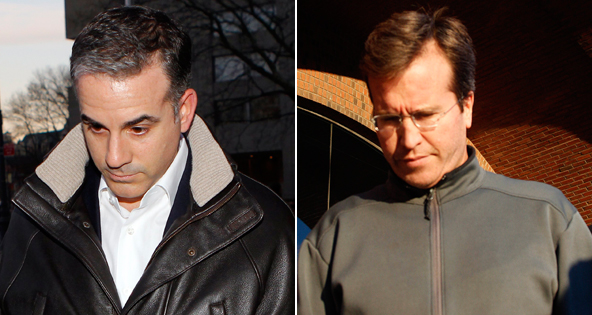The deal that helped sink Lehman Brothers is now playing an important role in paying off the failed investment bank’s creditors.
The Lehman estate agreed on Monday to sell Archstone, the sprawling apartment complex company, to Equity Residential and AvalonBay Communities for about $6.5 billion in cash and stock.
Under the terms of the deal, the Lehman estate will receive $2.685 billion in cash, as well as shares in Equity Residential and AvalonBay worth about $3.8 billion. The two apartment companies will also assume Archstone’s roughly $9.5 billion in debt.
By selling Archstone, the Lehman estate will dispose of its single biggest asset, as it continues its efforts to wind itself down and pay off the firm’s legions of creditors. And it will signal the latest twist for a property that has played an important role in Lehman’s demise.
Lehman bought Archstone in 2007, paying more than $22 billion to buy the apartment complex operator at the very height of the housing boom. That leveraged buyout piled even more debt onto an already overburdened firm, significantly contributing to its demise in the fall of 2008.
Since then, however, Archstone has become regarded as one of the crown jewels in the Lehman estate’s pile of assets. And as the estate has sold off a number of its other properties, from the asset manager Neuberger Berman to sundry other real estate holdings, the apartment company was held out as the best opportunity for a major payday.
Such was the Lehman estate’s zealousness that it bought out its partners in Archstone, Bank of America and Barclays, earlier this year, spending a total of $2.88 billion. The goal then was to prevent the firms from selling their holdings to Equity Residential too cheaply.
The stock component of the transaction announced on Monday will give make the Lehman estate the single biggest investor in Equity Residential, with a 9.8 percent stake, and in AvalonBay, with a 13.2 percent stake.
The purchase price represents a roughly 17 percent premium to what the Lehman estate had valued the apartment complex operator.
“The sale of Archstone to Equity Residential and AvalonBay is a very positive outcome for our creditors,” Owen Thomas, the chairman of Lehman’s board of directors, said in a statement.
Equity Residential, which is run by the billionaire Samuel Zell, will own about 60 percent of Archstone’s assets and liabilities. AvalonBay will own the remainder.
Lehman was advised by Gleacher Company, Citigroup, JPMorgan Chase and the law firm Weil, Gotshal Manges.
Equity Residential received advice from Morgan Stanley and the law firms Hogan Lovells and Morrison Foerster. AvalonBay was advised by Greenhill Company and the law firm Goodwin Procter.
Article source: http://dealbook.nytimes.com/2012/11/26/lehman-estate-to-sell-archstone-for-6-5-billion/?partner=rss&emc=rss
